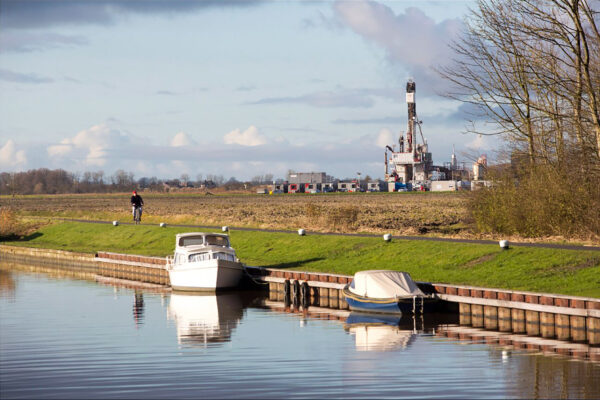
Europe’s supposed dependence on Russian natural gas is still frequently cited within the context of East-West relations. But this is an outdated view, argue the Brookings Institutions’ Tim Boersma and Michael E. O’Hanlon.
The two write that EU efforts to wean the bloc off its dependence on Russia, set in motion after the latter occupied and annexed the Crimean Peninsula from its former satellite state Ukraine in 2014, are paying off.
Russia still provides a third of Europe’s gas. But the continent has quietly turned the tables on its supplier in several ways, from expanding storage capacity to investing in alternative energy.
“One might say that Europe has escalation dominance over Russia,” Boersma and O’Hanlon argue; “the latter needs to export to Europe more than Europe need Russian hydrocarbons.”
Regulation
Perhaps the two most important developments are liquified natural gas and regulations that enhance the flexibility of gas transits.
The former owes something to the United States, which recently lifted a forty-year ban on oil and gas exports. The first ship carrying American liquified natural gas arrived in Portugal last month.
But the latter is entirely because Europe stood up to Gazprom, Russia’s gas monopoly, and won.
Competition rules enforced by the European Commission now ban Gazprom, or any company, from insisting on destination clauses in its contracts, meaning that the gas Russia sells to Germany can be resold to less Russia-friendly countries in Central and Eastern Europe.
Indeed, last year, Boersma and O’Hanlon report, Germany reexported thirty billion cubic meters of gas this way. “That volume exceeds the annual consumption of every European state with the exceptions of Germany, Italy, France and Britain.”
Another EU regulation, which makes it illegal for companies to bar others from using their pipelines, convinced Russia to cancel the €50 billion South Stream project. It may yet doom a proposed extension of the Nord Stream pipeline under the Baltic Sea as well.
No alternative
Russia has no choice but to live with these restrictions, Anca Elena Mihalache, an energy researcher, has argued in a report for the crowdsourced consultancy Wikistrat.
Europe is still 90 percent of Russia’s gas market. The faster-growing economies of East Asia may appear to provide an alternative, but this is still largely theoretical. Mihalache writes that Russia doesn’t have the pipeline infrastructure in place to switch from west to east and China drives a hard bargain.
Eventually, she argues, it would be in Russia’s interest to reopen its energy sector to outside investment to attract capital, gain access to Western technology and avoid market barriers like the EU’s antimonopoly regulations.
But that’s not the direction Vladimir Putin’s Russia is taking.
The author is a contributing analyst and project manager for Wikistrat.
